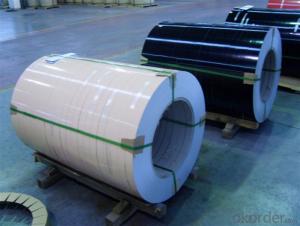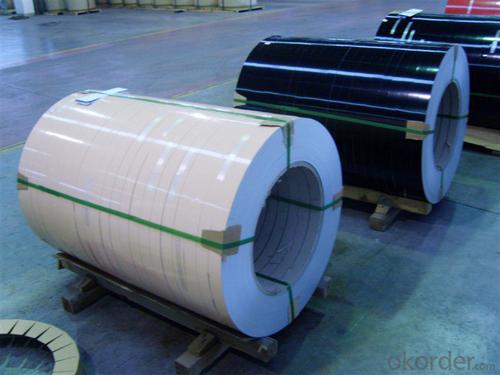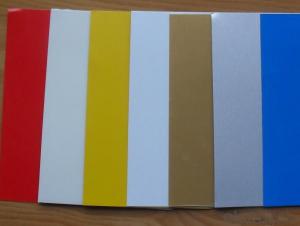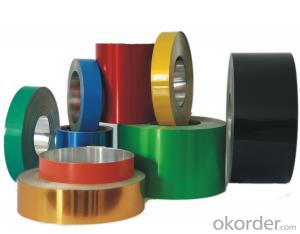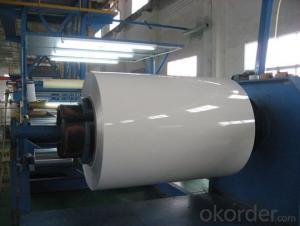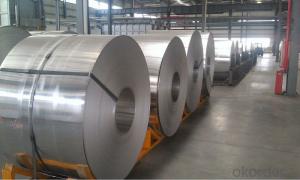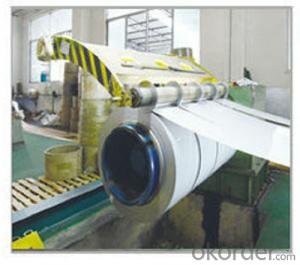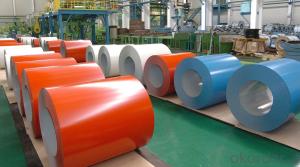RAL 8003 PE 18 Micros Coated Aluminum Coil Florida
- Loading Port:
- Shanghai
- Payment Terms:
- TT OR LC
- Min Order Qty:
- 2 m.t.
- Supply Capability:
- 50000 m.t./month
OKorder Service Pledge
OKorder Financial Service
You Might Also Like
Specification
Description
Standard | GB/T3190-2008, GB/T3880-2006, ASTM B209, JIS H4000-2006 .etc |
Thickness | 0.2-8.0 mm aluminium 7075 t6 |
Width | 1250mm 1000mm 1219mm or as your requirements |
MOQ | 2 Ton |
Package | Standard export package, by wooden box or as required. |
Application | 1060 is widely used in the strength requirements of the product. Products commonly used in signs, billboards, building exterior decoration, bus body, high factory wall decoration, kitchen sink, lamp, fan, electronic components, chemical apparatus, sheet processing, deep drawing or spinning hollow ware, welding parts, heat exchangers, Bell surface and plate, plates, kitchen utensils, accessories, safety equipment and other. |
Technical data
1060 aluminum Chemical composition | ||||||||
Al | V | Cu | Mg | Zn | Mn | Ti | Fe | |
99.6 | 0.05 | 0.05 | 0.03 | 0.05 | 0.03 | 0.03 | 0.35 | |
1060 aluminum Mechanical properties | ||||||||
Tensile strength(σb (MPa) | elongationδ10 (%) | |||||||
110-136 | 3%-5% | |||||||
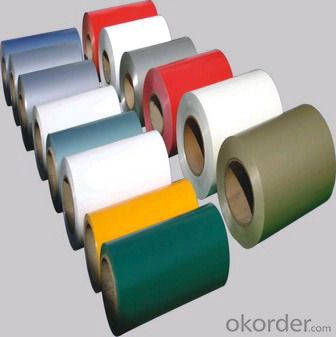
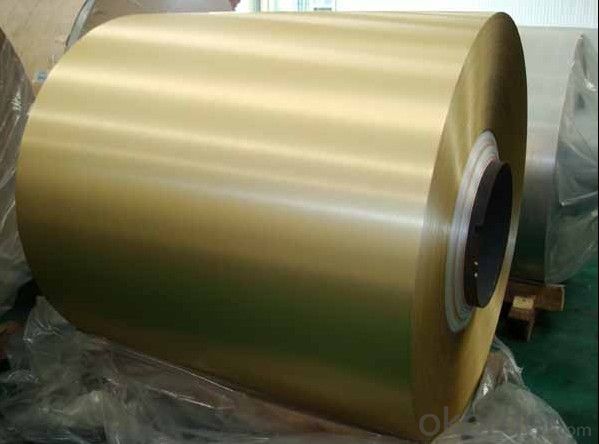
PE and PVDF Painting
Polyester Coatings (PE)
PE (polyester) coatings exhibit an excellent combination of hardness, flexibility, flow, appearance, and superior resistance to dirt retention in indoor and outdoor applications. These coatings are highly resistant to abrasion, metal marking, staining, and marring, and require minimal maintenance. Glazetech uses polyester paints which provide excellent colour and gloss retention properties.
Polyvinylidene Fluoride Coatings (PVDF)
PVDF (polyvinylidene fluoride) is a chemical resistant thick film barrier coating commonly used in architectural applications where both excellent appearance and substrate protection must be maintained over a long period of time. This coating is unaffected by most chemicals and solvents and has excellent wear and abrasion resistance. PVDF also has a high dielectric strength, excellent resistance to weathering and the ability to self extinguish.
- Q: What are the different edge treatments available for aluminum coils?
- There are several different edge treatments available for aluminum coils, each with its own unique advantages and applications. 1. Mill Finish: This is the most basic edge treatment, where the edges of the aluminum coil are left as they are after the manufacturing process. This treatment is typically used for applications where aesthetics are not a priority, such as industrial or construction applications. 2. Trimmed Edge: In this treatment, the edges of the aluminum coil are trimmed to remove any sharp or jagged edges. This ensures safer handling and reduces the risk of injury during fabrication or installation. 3. Deburred Edge: Similar to the trimmed edge treatment, the deburred edge involves removing any burrs or sharp edges from the coil's edges. This is particularly important for applications where the aluminum coil will come into contact with other materials or surfaces, as it helps to prevent scratches or damage. 4. Rolled Edge: With this treatment, the edges of the aluminum coil are rolled to create a smooth, rounded edge. This not only enhances the overall appearance of the coil but also provides added protection against corrosion and damage. 5. Beveled Edge: In a beveled edge treatment, the edges of the aluminum coil are cut at an angle to create a sloping edge. This is often used in architectural applications where a sleek and modern look is desired. The beveled edge can also facilitate easier welding or joining of the aluminum coil. 6. Hemmed Edge: This treatment involves folding or bending the edges of the aluminum coil to create a hem-like finish. Hemmed edges provide increased strength and rigidity to the coil, making it suitable for applications that require added durability or structural integrity. 7. Painted or Powder Coated Edge: In this treatment, the edges of the aluminum coil are painted or powder coated to match the color or finish of the rest of the coil. This is commonly done to achieve a seamless and uniform appearance in applications where the coil's edges are visible. Overall, the choice of edge treatment for aluminum coils depends on the specific requirements of the application, including both functional and aesthetic considerations.
- Q: This question asks for the distinctions between two types of metal coils: aluminum and iron.
- <p>Aluminum coil and iron coil differ in several aspects. Aluminum coil is lightweight, corrosion-resistant, and has good electrical conductivity, making it ideal for applications like electrical wiring and packaging. Iron coil, on the other hand, is heavier, stronger, and more magnetic, commonly used in construction and manufacturing for reinforcement and structural support. Additionally, iron is more prone to rust compared to aluminum, which is more resistant to corrosion. The cost and availability of these materials also vary, with aluminum being more abundant and less expensive than iron.</p>
- Q: Can aluminum coils be used for industrial piping?
- Yes, aluminum coils can be used for industrial piping. Aluminum is a lightweight and corrosion-resistant material, making it suitable for various industrial applications, including piping systems.
- Q: What are the different coil transportation options for aluminum coils?
- The different coil transportation options for aluminum coils include truck transportation, rail transportation, and container transportation.
- Q: How to calculate the length of aluminum sheet with the thickness known?
- Thickness*width*length=weight/density, length=weight/(density*thickness*width). Ps: Keep unit the same.
- Q: What is the density of aluminum coils?
- The size, shape, and composition of aluminum coils can cause variations in their density. On average, aluminum has a density of approximately 2.7 grams per cubic centimeter (g/cm³). This implies that each cubic centimeter of aluminum coil weighs around 2.7 grams. It should be emphasized that the density may slightly differ due to impurities or alloying elements, but the average value serves as a reliable estimate for the density of aluminum coils.
- Q: Can aluminum coils, which are typically used for industrial purposes, be utilized for baking pizza?
- <p>Aluminum coils, commonly used in industrial applications, are not recommended for baking pizza. While aluminum is a good conductor of heat and can be used in baking, aluminum coils are often too thick and not designed for direct contact with food. They may also contain coatings or treatments unsuitable for food. Instead, use aluminum foil or a pizza stone designed for baking to ensure food safety and even heat distribution.</p>
- Q: A bit of a question for the 1911 experts roaming around here. Per-say someone, who knew their way around a 1911 built one on an aluminum frame. To top it all off, if the finished gun were to be chambered in .38 super... how long would this combination last? I've heard horror stories about aluminum frames, and then I've heard some wonderful things... this question was to see if anyone had ever thought about/done this sort of thing before. Something tells me that Aluminum + .38 super wouldn't last too long... Most informative answer gets the ten point prize as usual.
- Aluminum might be corrosive resistant but it is softer than a stainless steel frame. It might be possible to shoot .38 super regular loads through it but any .38 super + P might cause a catastrophic failure of the weapon. Just my opinion.
- Q: What are the potential health risks associated with aluminum coils?
- The potential health risks associated with aluminum coils primarily revolve around exposure to aluminum particles, which can occur through inhalation or ingestion. Prolonged exposure to these particles may contribute to respiratory issues such as asthma and lung inflammation. Additionally, there is some concern about the potential connection between aluminum exposure and Alzheimer's disease, although more research is needed to establish a conclusive link. To mitigate these risks, it is advisable to ensure proper ventilation, minimize direct contact with aluminum surfaces, and maintain good cleaning practices to reduce the likelihood of particle release.
- Q: How do aluminum coils compare to other non-ferrous metals like titanium?
- Aluminum coils are generally lighter, more affordable, and easier to work with compared to non-ferrous metals like titanium. However, titanium possesses superior strength, corrosion resistance, and heat resistance properties, making it a preferred choice for applications requiring high performance and durability.
Send your message to us
RAL 8003 PE 18 Micros Coated Aluminum Coil Florida
- Loading Port:
- Shanghai
- Payment Terms:
- TT OR LC
- Min Order Qty:
- 2 m.t.
- Supply Capability:
- 50000 m.t./month
OKorder Service Pledge
OKorder Financial Service
Similar products
Hot products
Hot Searches
Related keywords
